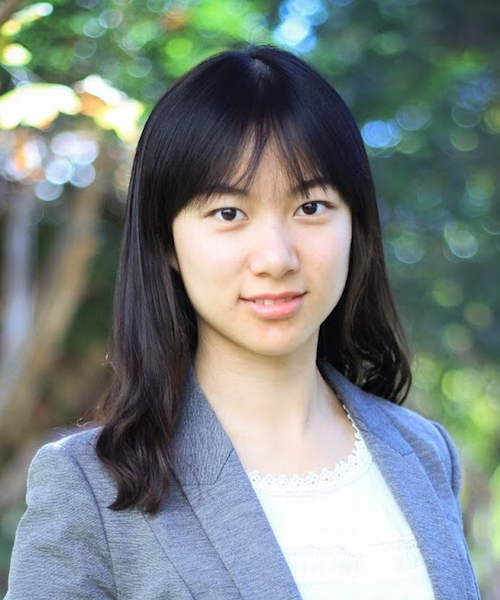
Paint this beautiful blueprint of the future together, shall we?
Ruolin Zhao | July 31, 2018
Responding To: Reflecting on the 2017-2018 U.S.-China Student Fellows Program
Chenyu Wu
Recently, I have been reading and comparing the notes I took during both the Washington, D.C. visit last year and this year's Beijing meeting, and I found it interesting to see how much things have changed regarding both U.S.-China relations and global issues.
Last September, when Mr. Pottinger from the National Security Council told us that it was the closest America and North Korea had been at going to war since 1953, I was feeling the worry and pressure in the meeting room, having no idea that eight months later we would listen to another conversation in Beijing discussing why the "peace meeting" between President Trump and Kim Jong Un was not productive enough. Also in the last year, we heard the argument on several occasions in Washington that a good personal relationship between President Trump and President Xi may lead to a smooth solution to the trade controversy, yet in the second meeting we began to ask questions such as "where will this U.S.-China 'trade war' go"?
While reviewing the fascinating visits, brainstorming discussions, and blogs with diverse topics we have accomplished for the past year, I found that the key mission remains the same: we tried our best to learn what the other side is thinking about issues of mutual concern, about the definition of the U.S.-China relationship, and about each other's society, history and traditions.
I have to admit that disagreement occurred from time to time. When we talked about a specific policy issue, the conversation would, with great probability, lead to a "fight" (in a very neutral and friendly way) between different thought patterns or basic principles. For example, during our Beijing trip, there was a continuous discussion about the impact of China's development projects in Africa and Latin America, and several times the conversation ended with Chinese fellows debating against U.S. fellows about whether China is trying to change the fundamental values of the current international system by ‘exporting’ its own development approach, and whether individual rights should be valued over society's common development.
But besides disagreement, our fellows’ interactions cultivated greater mutual understanding. I keep recalling the North Korea nuclear crisis simulation game we had last year in Washington. In one section, I role played Secretary Mattis and started to realize the pressure for a U.S. policymaker and found myself making decisions that would not be preferred by Chinese; in another section, one of our American fellows made an argument as the "China side," which Professor Wilder commented was exactly the response a Chinese official had given.
During our Beijing meeting, the two sides did a comparison of our grandparents’ ideology and values, after which we found that there was more similarity between young Chinese and Americans than we had expected. We are all quite different from elder generations: young Americans have stopped thinking of the United States as perfect, and Chinese young people are questioning our country much more than our grandparents and parents. Fellows in this program from both countries are enthusiastic for education, entrepreneurship, and gender equality, and have the willingness to embrace different values.
It can be hard to summarize word for word what I have learned from these enlightening experiences, but I did gain a better knowledge of what needs to be done to fix and improve the U.S.-China relationship on a practical level. China and the United States are coming unstoppably closer, whether its in economic relations or geopolitical conflicts or cooperation over global issues. In this process where both countries have constantly growing influence, domestic issues for the United States and China are no longer purely domestic. Policies addressing internal problems are impacting not just U.S.-China relations, but also the rest of the world. We have seen this with the worldwide concern of Made in China 2025, and have witnessed how the Trump administration has satisfied American working families with the sacrifice of free trade and investment. In both cases, China or the United States is questioned, not for being an irresponsible government for its own people, but for being an irresponsible stakeholder in international society.
I cannot speak for the U.S. side, but governmental sectors and the public of China have to improve the awareness of Chinese global responsibilities when they carry out their domestic enterprises. Or, as fellow peer, Ulysses put it, China is setting exemplars for developing countries via its domestic behaviors. Somewhat blinded by our own narratives, we are not paying enough attention to people's feelings when we try to solve bilateral conflicts with America or multilateral issues with other countries. And from what I have learned in this program, I hope that one day in the future, I can fulfill myself as an educator for the public about U.S.-China relations and China’s international obligations, and an advisor with more international sense for policymakers in various fields. As Professor Wilder said, “To whom much is given, much is demanded.” I feel the responsibility on my shoulders already.
Chenyu Wu is a junior at the University of International Relations in Beijing majoring in international politics.

Ruolin Zhao | July 31, 2018

Ulysses McGuinness | July 31, 2018

Haile Chen | July 26, 2018

Michael Mullaney | July 25, 2018

Cynthia Wang | July 24, 2018

Jessie Dalman | July 20, 2018

Yamillet Payano | July 19, 2018

Yunxin Wang | July 18, 2018

Hongjin Xu | July 16, 2018